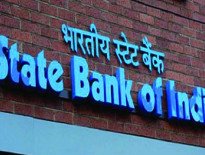Share

The Reserve Bank of India (RBI) regularly issues circulars and notifications about banking regulations, which are publicly available on their official website. Major policy changes regarding credit scoring and loan approvals would be widely covered by financial media and officially documented. The absence of such verification from established sources suggests these claims may be inaccurate or misrepresented.
Understanding Credit Scoring Reality in India:
Credit scoring in India operates through established credit information companies like CIBIL, Experian, Equifax, and CRIF High Mark. These agencies collect financial data from banks and financial institutions to create credit reports and scores. Banks use this information as one factor among many when evaluating loan applications, but they have never been required to reject applications based solely on credit scores. Banks typically consider multiple factors when evaluating loan applications including income stability, employment history, existing debts, collateral and overall financial profile. Credit scores serve as a risk assessment tool rather than an absolute determining factor. Different banks have varying risk appetites and may approve loans for applicants with lower scores if other factors compensate for the perceived risk. The lending process involves comprehensive financial evaluation beyond credit scores. Banks assess debt-to-income ratios, employment stability, asset ownership and repayment capacity. This holistic approach has been standard practice in Indian banking rather than a recent regulatory change.
Current Regulatory Framework for Lending:
RBI provides guidelines for responsible lending practices, but banks retain discretion in their lending decisions based on internal risk management policies. RBI regulations focus on ensuring fair treatment of borrowers, proper disclosure of terms and adherence to know-your-customer requirements rather than mandating specific approval criteria. Banks are required to have transparent lending policies and provide clear reasons for loan rejections. However, these requirements have existed for years and do not represent recent policy changes. The regulatory framework emphasizes responsible lending that considers borrower capacity to repay while maintaining the health of the banking system. Credit bureau regulations ensure accuracy of credit information and provide mechanisms for borrowers to dispute errors. The current system already allows borrowers to access their credit reports and seek corrections, when necessary, though the specific terms and costs may vary.
Credit Report Access and Costs:
Credit reports in India are available through various channels including direct requests from credit bureaus, online platforms and financial institutions. The cost and frequency of free reports vary depending on the credit bureau and specific circumstances. Some credit monitoring services offer free reports under certain conditions, while comprehensive reports may involve fees. Recent changes in credit reporting access have focused on digital convenience and error resolution rather than universal free access. The specific claim about one free annual report for everyone lacks verification from official sources and may not accurately reflect current policies across all credit bureaus. Borrowers can access their credit information through multiple mechanisms including annual disclosures from lenders, online credit monitoring services and direct bureau requests. Understanding the actual terms and costs requires checking with specific credit bureaus rather than relying on unverified claims.
Impact on First-Time Borrowers and Financial Inclusion:
Financial inclusion efforts in India involve multiple initiatives including simplified account opening procedures, alternative credit assessment methods and targeted lending programs for underserved populations. These efforts aim to expand access to financial services for people with limited credit history or documentation. Banks have increasingly adopted alternative data sources for credit assessment including digital transaction history, utility payments and income proxies for informal sector workers. These approaches help evaluate creditworthiness beyond traditional credit scores, particularly for first-time borrowers and rural populations. Government schemes and priority sector lending requirements encourage banks to serve previously excluded populations. These policies create incentives for financial inclusion without necessarily changing the fundamental credit assessment process or prohibiting the use of credit scores.
Loan Approval Process Standards:
Standard loan approval processes in Indian banks involve multiple verification steps including income documentation, employment verification, reference checks and credit history review. This comprehensive approach helps banks assess risk while providing opportunities for borrowers with varying credit profiles. Banks typically maintain flexibility in their lending criteria based on loan amount, purpose, collateral and borrower profile. Secured loans may have different approval criteria compared to unsecured loans and banks may offer varying interest rates based on perceived risk levels. The evaluation process considers factors beyond credit scores including relationship with the bank, existing account history and overall financial behavior. This holistic approach allows banks to serve diverse customer needs while maintaining prudent risk management practices.
Consumer Protection and Fair Lending:
Consumer protection in lending focuses on transparency, fair treatment and proper disclosure of terms and conditions. Banks are required to provide clear information about loan terms, fees and rejection reasons when applicable. These protections help borrowers understand their rights and options. Dispute resolution mechanisms allow borrowers to challenge unfair treatment or incorrect credit information. The banking ombudsman system and credit bureau dispute processes provide avenues for addressing grievances related to lending decisions or credit reporting errors. Financial literacy initiatives aim to help borrowers understand credit scoring, loan requirements and their rights as consumers. These educational efforts contribute to better financial decision-making and more effective use of available credit products.
Verification and Reliable Information Sources:
Borrowers seeking accurate information about lending regulations and credit policies should consult official sources including the Reserve Bank of India website, licensed credit bureaus and authorized banking channels. Major policy changes are typically announced through official communications and covered by established financial media outlets. When evaluating claims about regulatory changes, look for official notifications, circular numbers and implementation dates from regulatory authorities. Unverified claims on social media or unofficial websites may contain inaccuracies that could mislead borrowers about their rights and options. Banks and licensed financial institutions can provide accurate information about their current lending policies, credit requirements and available products. Direct consultation with these sources offers more reliable guidance than unverified online claims.
Practical Advice for Credit Building:
Borrowers interested in improving their credit profiles can focus on established strategies including timely payment of existing obligations, maintaining low credit utilization ratios and avoiding excessive credit inquiries. These approaches help build positive credit history over time. For first-time borrowers, starting with secured credit products or small loan amounts can help establish credit history. Many banks offer starter products designed for people with limited credit experience, providing pathways to build creditworthiness gradually. Regular monitoring of credit reports helps identify errors and track progress in credit building. Understanding credit factors and maintaining good financial habits contributes to long-term credit health and improved access to financial products. The Indian financial system continues evolving to serve diverse populations while maintaining stability and sound risk management. Understanding actual policies and regulations rather than relying on unverified claims helps borrowers make informed decisions and effectively navigate the lending landscape.
Disclaimer: This article provides analysis of unverified claims about RBI policies and lending regulations. For accurate information about current lending rules, credit reporting policies, and regulatory requirements, consult official RBI publications, licensed credit bureaus, and authorized banking institutions.
Source : https://ihc2023.in/rbi-cibil-score-new-rule-2025/









